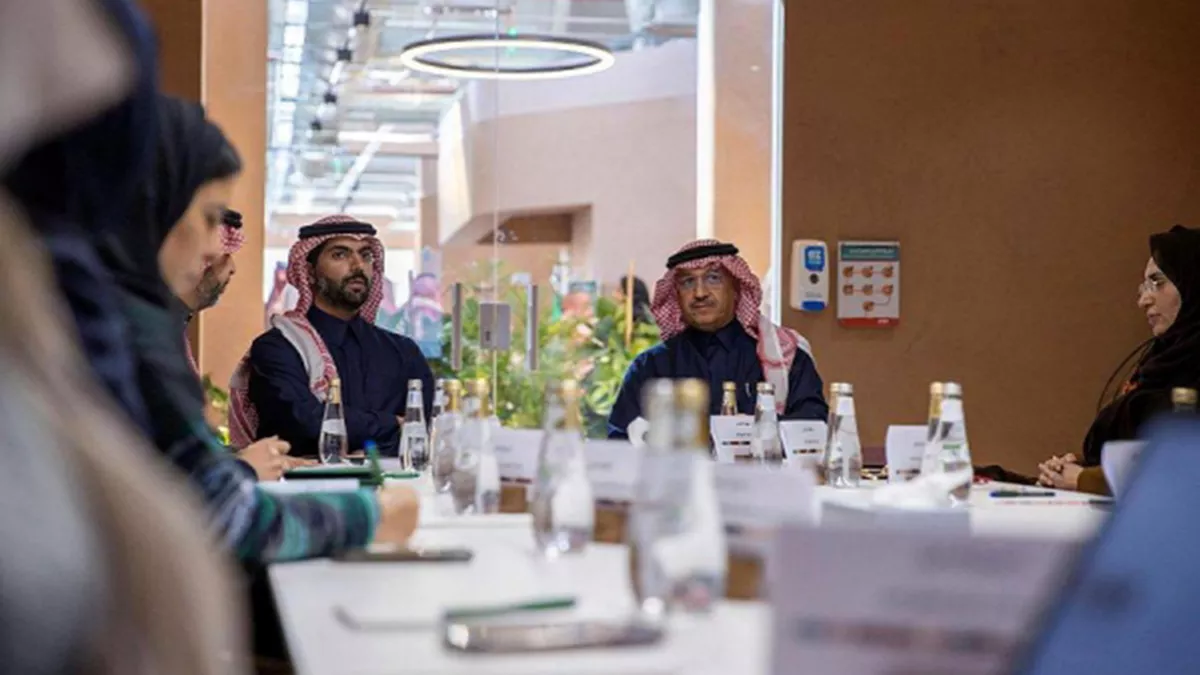Strategy for Developing Cultural Capabilities by Ministry; aims to link education outputs to culture sector
16 Dec 2022
News
The strategy for Developing Cultural Capabilities was launched on Thursday by Saudi Arabia's Culture Ministry and Education Ministry. It aims to link the education outputs with the needs of the labor market in the culture sector. The strategy will work by including art and culture in all stages of education, technical and vocational training, as well as developing an educational environment for the growth of the cultural sector and elevating it to reach broader areas in light of Saudi Arabia's Vision 2030. The strategy is based on 3 pillars — qualified graduates in the field of culture; sustainable jobs; art connoisseurs.
The strategy for Developing Cultural Capabilities has several goals, the first of which is to provide more than half of the general education schools with extra-curricular cultural activities by 2026.
It also targets more than 5% of general education graduates to choose culture as a major and work in the cultural sectors. The strategy, along with other goals, aims to graduate more than 20,000 students from universities and technical and vocational training centers with qualifications to work in the cultural sector. It also aims to increase the number of training institutions in the field of art and culture to 120.
The strategy seeks to support amateurs with the aim of having more than 14% of Saudis take hobbies related to culture and arts. It also aims to orientate 60% of people to have a positive perception toward artistic and cultural courses and hobbies.
Six goals have been identified for the strategy to achieve, which include: ensuring that talents and artistic and cultural hobbies are continuously explored and appreciated; providing the opportunity to develop hobbies and non-institutional education to enhance individuals exploring artistic interests and skills; offering the general education students with a high-quality foundational education in culture and arts.
Moreover, it aims to provide university students and technical and vocational trainees with high-quality programs in terms of art and culture to meet the needs of the labor market; enable sustainable professional development for art and culture practitioners and entrepreneurs; increase the general awareness of developing the cultural capabilities and create a positive image for the artistic and cultural professions and talents.
The goals will be distributed within four educational paths: general education; university education; technical and vocational training; and continuing education. The strategy will work to achieve this via several programs, such as teacher development; academic and cultural activities; specialized colleges and academies; technical and vocational programs; talent hunting and nurturing programs; and art and culture curricula.
Thirty-three initiatives will be taken within the framework of the strategy, including programs for discovering talents; designing and improving culture and arts curricula in general education; determining teachers' professional standards, and the standard and infrastructure development in schools; cultural scholarship program and many more.
The strategy will allow the students to discover their identities, culture, and their society which would enhance their sense of belonging and appreciation for differences and cultural diversity. In addition to increasing their confidence, and developing their social skills, it will have a positive impact on their academic achievement.
It will also offer better opportunities for talented students of both sexes and create a creative generation that serves 16 cultural sectors.
Minister of Culture Prince Badr bin Farhan affirmed that the strategy aims to develop the cultural and artistic capabilities and skills of community members through an integrated system of policies, standards and academic programs that will contribute to enriching cultural creativity in Saudi Arabia.
On his part, Minister of Education Yousef Al-Benyan said including the arts and culture in all education stages will contribute to developing the educational process. He noted that the strategy will support the students' talents and develop their capabilities to compete globally.
